Should You Repair or Replace Your HVAC System?
As a homeowner in the Pacific Northwest, maintaining a comfortable home throughout the year is essential. Whether it's keeping warm during the wet, chilly winters or ensuring your home stays cool during the milder summers, your HVAC system plays a crucial role.
But what happens when your system starts showing signs of age or frequent malfunctions? Should you repair it, or is it time for a replacement? This guide will help you make an informed decision by exploring key factors specific to our region.
Is It Time to Repair or Replace Your HVAC System? A Comprehensive Guide for Pacific Northwest Homeowners
Deciding whether to repair or replace your HVAC system can feel overwhelming, especially when you consider the investment involved. However, understanding the unique demands of the Pacific Northwest climate and the specific needs of your home can make this decision clearer. In this section, we’ll break down the critical factors to help you determine the best course of action for your HVAC system.
Understanding the Pacific Northwest Climate and Your HVAC System
The Pacific Northwest's unique climate can significantly impact the longevity and efficiency of your HVAC system. With the region's damp winters and fluctuating temperatures, HVAC systems often experience more wear and tear compared to those in milder climates. Understanding how local weather affects your system can help you determine whether a repair or replacement is the best course of action.
Age of Your HVAC System: When is Replacement Necessary?
HVAC systems typically last between 15 to 20 years, according to EnergyStar. However, in the Pacific Northwest, where systems are often running to combat the damp cold, this lifespan can vary. If your system is approaching or surpassing the 20-year mark, it may be more cost-effective to replace it rather than continue with costly repairs. Older systems tend to be less efficient, leading to higher energy bills and more frequent breakdowns.
Energy Efficiency and Environmental Impact
For many homeowners in the Pacific Northwest, energy efficiency is a top priority. Upgrading to a system with a high SEER (Seasonal Energy Efficiency Ratio) rating can significantly reduce your energy consumption, lower your utility bills, and decrease your home's carbon footprint. Newer HVAC systems are not only more efficient but also more environmentally friendly, particularly those that use refrigerants that are less harmful to the ozone layer. With older systems, especially those using R-22 refrigerant (which is being phased out), a replacement might be necessary to maintain compliance with environmental regulations.
Safety Concerns: Knowing When to Replace for Your Family’s Well-being
Safety should always be a primary concern when deciding between repair and replacement. If your system has a cracked heat exchanger or other significant safety issues, replacement is often the best option. A cracked heat exchanger, for example, can leak carbon monoxide—a potentially deadly hazard. Electrical issues that could cause fires are also serious concerns that might necessitate a full system replacement rather than just a repair.
Reliability vs. Repair Costs: How to Make the Right Decision
One of the most frustrating aspects of an aging HVAC system is its reliability. If you find yourself calling a technician multiple times a year, those repair costs can quickly add up. While preventive maintenance can address minor issues like clogged drains or dirty filters, consistently high repair bills may indicate that it's time to invest in a new system. Much like an aging car, there comes a point where continuing to pour money into repairs is less economical than purchasing a new, reliable unit.
Local Incentives: Saving Money on a New HVAC System
Homeowners in Washington and the greater Pacific Northwest should be aware of local incentives and rebates available for upgrading to a more efficient HVAC system. State and utility company rebates can significantly reduce the upfront cost of a new system, making the decision to replace more financially feasible. Additionally, many newer systems qualify for federal tax credits, further reducing the cost of upgrading.
Making the Best Choice for Your Home
Deciding whether to repair or replace your HVAC system is a significant decision that impacts your home's comfort, safety, and energy efficiency. By considering the age of your system, the unique demands of the Pacific Northwest climate, and the potential safety risks, you can make a choice that best suits your needs. Don’t forget to explore local incentives that can help make replacement more affordable. Ultimately, whether you decide to repair or replace, the goal is to ensure your home remains a safe and comfortable sanctuary year-round.
We are Here to Help!
If you’re in the Vancouver or the Portland metro, we are here to help. Give us a call for a free consultation today if you think your system needs a repair or to find out what kind of HVAC system will work best for you. If you are in Vancouver call us at 360- 695-6500 and Portland at 503-972-2434.

